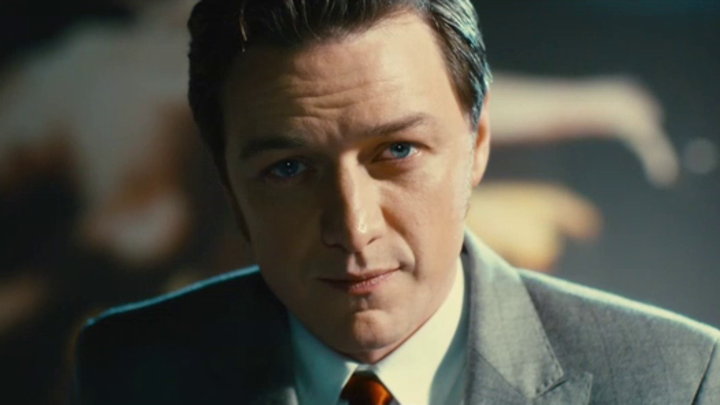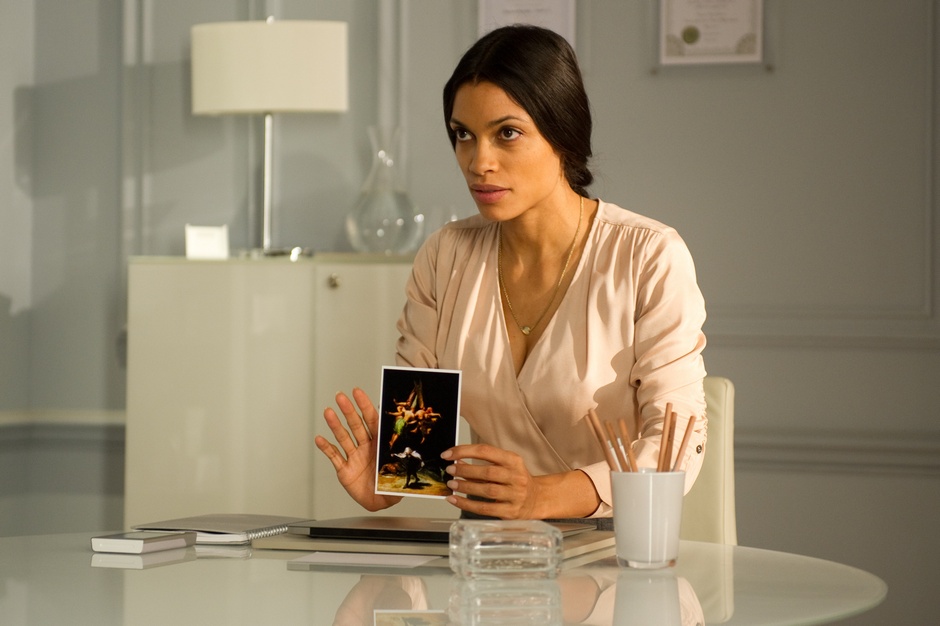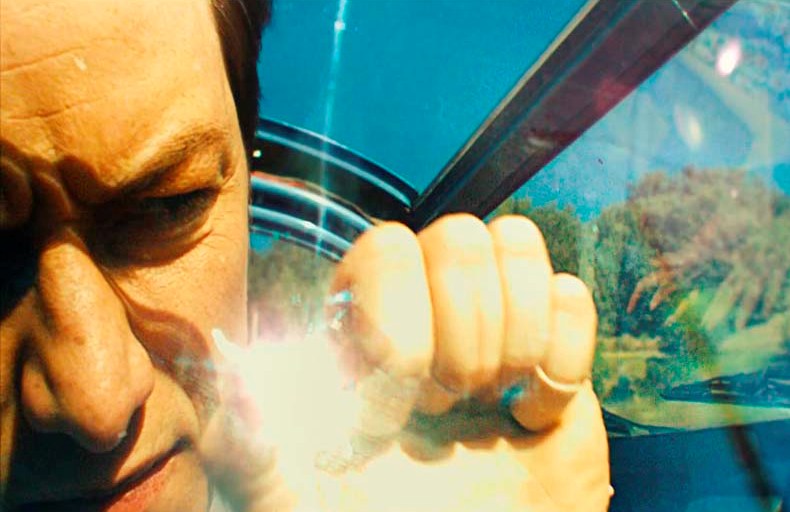|
Trance
is an
extremely convoluted film by director Danny Boyle, not necessarily
because of
the narrative structure but how the film is stylistically pronounced.
There are
audio-visual red herrings used to mask over the absurdity of a plot
that
switches from a heist movie to an internal psychodrama. However, once
you
overcome the deliberate sensory overload, the story and characters
don't make
enough sense to hold any emotional investment. Despite Boyle's
experience and
imprint as a deeply stylised filmmaker, Trance
is a disappointing example of technique in search of effect.
The
film starts off with humour and an energetic heist, but the
story and the character motivations are extremely convoluted, buried
deep
beneath the [electronic] sound and fury. Simon (James McAvoy) is an
auctioneer (or
is he?) who describes the changing methods of stealing art over the
years. It
turns out that he is actually part of a job himself and in the chaos of
a raid
on an auction he snatches a Goya painting. As he escapes, he is hit over the
head by
crime figure Franck (Vincent Cassel).

Due to the blow on his noggin, Simon can't
remember where he hid the painting. Franck tortures him for the
location but
this fails. Simon is then instructed to see Elizabeth (Rosario Dawson),
a
hypnotist who Franck and his men believe will be able to work his mind
and
reveal where the painting is. Simon must lie to Elizabeth
about what
he is actually trying to find.
Aside from the heist, there's very little here
that's believable or clear. There's an early scene for example, where
the thugs
wire up Simon with a microphone and listen in on the sessions from
their car,
which doesn't ring true. One of the major problems with the film's
plotting is
that there is little time establishing who the characters are. The
screenplay
by Joe Ahearne and John Hodge is hesitant to revealing the inner life
of the
main players only so that they can withhold a huge plot twist at the
end. It's
not a gamble that pays off because the 'gotcha' moment feels more like
a
conventional thriller twist rather than a psychological insight into
Simon's
character.

Failing to establish the characters properly weakens
their credibility and motives and makes them seem more like plot
devices
existing in a vacuum instead of real people. You will be
wondering why
Elizabeth strives so persistently to help Simon and when those answers
are
revealed late in the film they're improbable and unsatisfying. The
narrative
twist will remind you a lot of Inception,
which Trance draws heavily from in
the way it plays with memories, but it is without the same clarity or
the
emotional investment, failing to earn its story turns from the start.
Realising the generic hide and reveal structure
of the narrative, Danny Boyle has employed an aesthetic resembling a
music
video to disorientate the viewers. I was impressed with the bravery of
his
formal choices in 127 Hours (2010)
but it's like he's forgotten how to be calculating as a filmmaker. The
stylistic choices he makes either lack purpose or overstate the theme.
Camera
angles are frequently tilted sideways and a neon lit colour scheme is
employed
to remind us tiredly of Simon's confusion. The blaring electronic
soundtrack also
raged so loudly and needlessly that I stuck my fingers in my ears at
one point.

If these superficial techniques weren't
distracting enough, the film also tries its hand at melding the real
and the
fantastic together in overlapping scenes, so that we're not sure if
we're in a
dream or not. The film becomes very messy, super violent, and not much
fun. I
found it so confusing that it took me out of the story and I didn't
care one
iota about the characters. If there is a point to their story, the film
is
about the way that people try to suppress trauma and personal
responsibility in
their minds. Yet for a movie striving to be psychological, it is the
personal
and human weight that is notably missing.
|